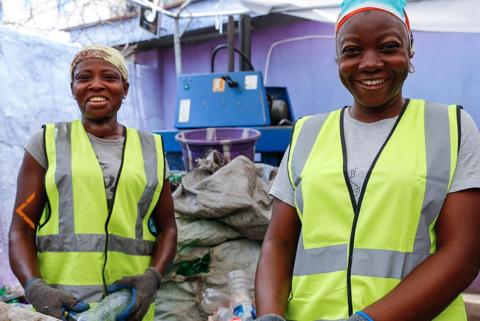The Fair Plastic Alliance: give plastic a second life - and people a better one
The Fair Plastic Alliance believes that plastic waste management based on a not-for-private-profit business model is a powerful solution to generate a positive impact on the environment and on the society as a whole, in both developed and developing countries. The multi-stakeholder network is spreading social responsibility in plastic waste management, especially in low-income areas and adverse contexts, to achieve social as well as environmental sustainability.
Products manufactured under the “Fair Plastic” brand will be bottle-to-bottle grades, produced in FPA members' recycling plants which meet the quality standards established by the industry and comply with well-defined business rules shaped on social business model.
To be a partner of the Fair Plastic Alliance does not entail any legally binding financial or administrative obligation and allows the partner to have access to information and to benefit from the activities made available by the Alliance.
Member plants are certified according to the Fair Plastic certification and accept to undergo audits on a regular basis to assess their social and environmental impact.
Some examples of the Fair Plastic Alliance in action:
Wecyclers in Nigeria
- over 17000 service subscribers
- over 1000 tons of PET collected yearly
- 120 people employed
Ekurhuleni Coops, South Africa
- 46 waste cooperatives involved + local SMES
- 1500 people involved
- 15 municipal districts testing the project
Centro Plastica, Italy
- The plant is equipped for the treatment and transformation of post-consumer plastic packaging into granulated resin of high-density polyethylene (rHDPE), which is sold on the market for the production of new packaging. The sourcing model is mainly based on public auctions and is open to social enterprises and coops.
- The plant processes 5000 tons/year

